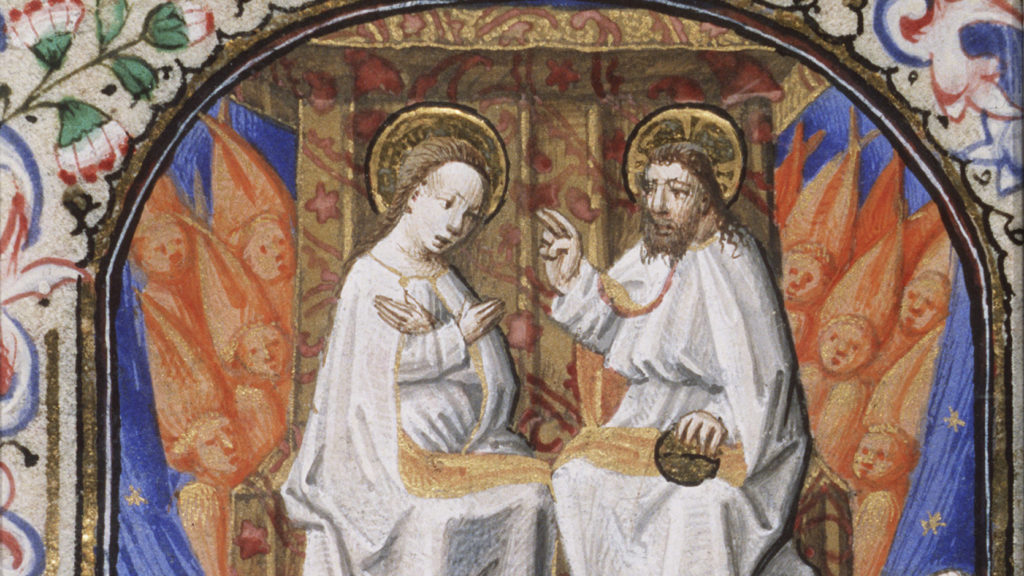“Catholic” comes from the Greek word meaning universal. St. Ignatius of Antioch gives us our earliest surviving witness to the common use of the term. He wrote to the Christians of Smyrna: “wherever Jesus Christ is, there is the Catholic Church.”
Ignatius wrote those words in A.D. 107, not terribly long after the first Christian Pentecost. If you read the passage in context, you’ll see that Ignatius simply drops the phrase without fanfare or explanation. It is quite likely it was already well established by that time.
The Church celebrated its unity and universality from the day of its birth. In the Acts of the Apostles we find that all manner of people were in Jerusalem when the Church received the Spirit: “Parthians and Medes and Elamites and residents of Mesopotamia, Judea and Cappadocia, Pontus and Asia, Phrygia and Pamphylia, Egypt and the parts of Libya belonging to Cyrene, and visitors from Rome, both Jews and proselytes, Cretans and Arabians” (Acts 2:9–11).
The Church was universal from that beginning, and the apostles spent their lives and shed their blood in order to preserve that original unity and catholicity.
Why? Because it was a distinguishing mark of Christianity. A little more than half a century after Ignatius, a North African named Tertullian said that his neighbors in Carthage marveled at the indiscriminate kindness of Christians. They remarked that Christians wore charity like a brand or tattoo on their bodies.
The world had never seen anything like this before. Every other cultural current was tribal. Every other movement, even among the Jews, was intended to divide — my people from your people. And the only way to unify was to conquer by brute force, as Rome did, as Persia did, as Macedon had done.
Where everyone else divided, Christians unified by means of charity, understanding, and a hermeneutic of generosity. Don’t get me wrong: they made important distinctions; and they certainly called out evil when they saw it; and they were willing to die for their witness. But they managed, by grace, to transcend the political bitterness and corruption of their times.
And they managed to convert their neighbors to a better way.
At this time, in my country, we are living through a time of bitter division. I hope we have seen the worst of it, but I fear we haven’t, and I find my prayers sounding more urgent as we enter the final month before our general election.
The weeks ahead call us to take great care in our witness. People will judge Christianity by what they see of Christians. When we speak and act with charity, we’ll witness to Christ. When we don’t, we won’t.
Some people are calling this election a referendum on the future of the country. I’m begging them to look at the coming weeks and days as a referendum on our personal sanctity, yours and mine. When we’re more holy, we unify — and we make the world more Catholic.
Consider, too, that our universality, our unity, includes the heavenly Church, the “great cloud of witnesses” (Hebrews 12:1). They are our older siblings already inhabiting our heavenly home. They are souls at rest, at peace, and their peace is contagious. Stay close to them.

